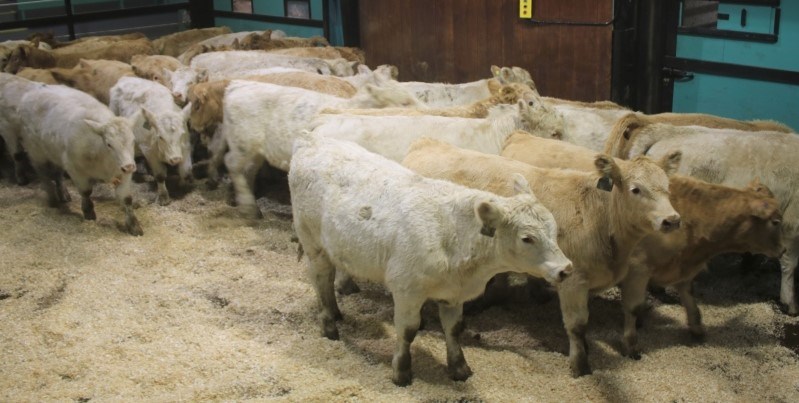BRANDON - Planting a seed of curiosity in students across the province, Agriculture in the Classroom Manitoba has a series of special activities planned in honour of Canadian Agriculture Literacy Month.
This year, more students than ever — a 24 per cent increase in 2022 — are registered to participate in hands-on activities during Canadian Agriculture Literacy Month (CALM). Volunteers from the agriculture industry will virtually visit 501 classrooms, connecting with 11,430 students.
"All agriculture does start with a seed — whether it’s growing a crop or growing feed for animals," said Sue Clayton, executive director for Agriculture in the Classroom Manitoba. "That’s the basis of how we’re able to survive."
Ag in the Classroom is trying to bring back opportunities for young people to feel engaged and connected with the process through which their food is grown.
Several factors have fuelled CALM’s growth. The program has been building a name for itself since it was launched more than 10 years ago. Teachers are learning about CALM through positive word of mouth and there is also a rising interest from people looking to better understand where their food comes from.
The theme of this year’s CALM in Manitoba is "It all Starts with a Seed."
Students in kindergarten to Grade 2 will receive the new Sprout Head Mini Grow kits that include a peat puck and seeds. The activity allows youth to grow little microgreens in their classrooms. It is accompanied by an activity guide and booklet to help them learn more about agriculture.
Students in grades 3 to 6 will receive the Manitoba Seed kit, which has been carefully designed by Ag in the Classroom and includes 15 seeds of pivotal crops in the province.
"It’s something we have been planning for and fundraising for over the last year. It’s a massive project, but it’s going to be an absolutely stunning seed kit that teachers will have in their classroom for years to come," Clayton said.
The seed kits come with a teacher guide, hands-on activities and a booklet.
Students will also be able to participate in the Great Canadian Farm Tour, organized by Agriculture in the Classroom Canada. The virtual tour will run for the first time this year and will let youth explore farms located across the country, live. On March 15, Smith Family Seeds in Pilot Mound will be featured on the tour for Manitoba.
"You can watch a maple syrup farm in Quebec, watch an ag farm in B.C. or a dairy farm in Saskatchewan," Clayton said. "It’s great — students can be sitting in a classroom in Manitoba and learning about a farm on the East Coast of Canada or the West Coast of Canada."
Agricultural literacy remains critical in Canada and Manitoba.
"Our North Star goal at Agriculture in the Classroom Manitoba is that all students graduate from high school being agriculturally literate citizens," Clayton said. "We want educators and students to understand and value the contribution of agriculture to our society."
Canadians are becoming further removed from the farm with each generation. Many have lost their connections to agriculture and no longer understand how their food is produced and gets from the farm to the table.
There is a need to better understand the critical place of agriculture in Canada, Clayton said, especially because one in eight jobs in the country is directly linked to the sector.
Ag in the Classroom has more than 800 volunteers in Manitoba and in 2021, they were in every school division in the province sharing insights into the industry. Volunteers and staff get to see firsthand when a student learns about the industry.
"It’s so exciting when kids get it," Clayton said. "You don’t know what you don’t know is so true when it comes to this industry, and it’s a huge, huge industry … I think it’s just so important that when children are in school, they’re learning a little bit about the basis of life and our food supply."
During the month of March, 109 specially trained volunteers will provide 314 virtual classroom presentations for students. Demand for programming is at an all-time high, she added, and they have not been able to fill all the spots teachers have requested for classroom visits.
"We could not do what we do without the help of our amazing sponsors, donors and volunteers."

